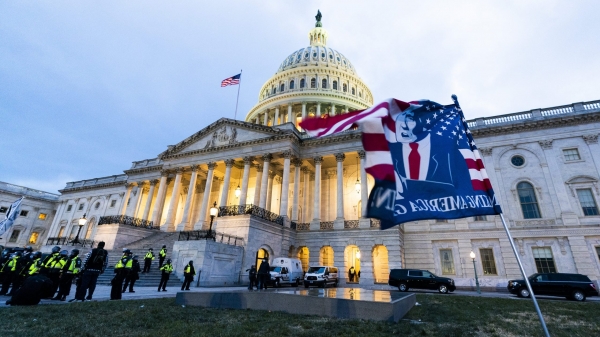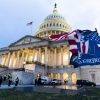By Brandon Moseley
Alabama Political Reporter
On Thursday the Alabama House of Representatives passed Senate Bill 445 which amended the Fair Campaign Practices Act to clarify the rules and deal with unintended consequences created by the 2010 campaign finance reform legislation spearheaded by the then newly elected Republican super-majority. SB 445 was sponsored by Senator Bryan Taylor (R) from Prattville and was carried in the Alabama House by Representative Mike Ball (R)f from Madison.
Rep. Ball said he has been working with a commission that has been studying comprehensive campaign finance reform since last summer and this legislation (SB445) is the result from those recommendations
Rep. Darrio Melton (D) from Dallas asked, “Why do we need this?”
Rep. Ball said that the existing law is convoluted. All of it is in different places and much of it is based on Attorney General opinions and court rulings.
Representative Jim McClendon (R) from Springville said, “One thing we know is that our Fair Campaign Practices Act has needed some fine tuning. Thank you for making this a little less onerous task.”
Rep. Melton asked, “Why are we taking off the caps on corporate contributions?
Rep. Ball said, “The caps were not real. They just made people feel good.” “It is a pretend cap. A corporation under current law can give as much money as they want.” Rep. Ball said that if a corporation want to give $20g to a candidate they just give the money to three PACs to give to the candidates. Ball said that the existing law doesn’t stop a corp from giving up to $5000 to multiple PACs who then give the money to the candidate they are supporting.
Rep. Melton said that no corporations supported his campaign and suggested that the state ban all corporate contributions.
Rep. Ball said that there are constitutional questions about limiting a corps right to give to PACs.
based on task force recommendations and individuals already had no caps on their political activities.
Rep. Melton said, “Elections should not be about money.” “If I outspend you my chances of getting elected is greatly increased.”
Ball said that the committee is going to be meeting along this summer and invited Rep. Melton to come to the meetings and offer his input.
Rep. Christopher John England (D) from Tuscaloosa objected to the provision that allowed county political parties to give to candidates and the state political party or vice versa. England said that is a, “Loophole if you are looking for one.”
Rep. Ball said, a lot of lawyers were working on this and that there were divisions of opinion on whether existing law prevented those transfers or not. Ball said, “A county party is a subset of the state party,” but some people on the commission thought that they needed that rule to allow state party to get money out to the county party. The change simply makes that clear.
Rep. Joe Hubbard (D) from Montgomery worried that the bill would weaken the ban on PAC to PAC ransfers, because it exempted political parties and private foundations from the PAC to PAC transfer ban. Joe Hubbard said on Facebook, “Bryan Taylor’s campaign finance bill “creates an exception to the PAC-to-PAC transfer ban that supporters say is meant to let a state political party PAC transfer money to a local PAC affiliated with the same party.” Shuffling and hiding money, even within the same party, does not further the interest of transparency and accountability in elections. Your move Sen. Taylor.”
Rep. Patricia Todd (D) from Birmingham said that the party transfer rule sets up a shell game. “Of course my party isn’t going to give me a penny. I am not a fan of the two party system because it artificially divides us.”
Rep. McClendon told ‘The Alabama Political Reporter’ that it was never the intention of the legislature to prevent the county parties from being able to raise money and transfer it to either their candidates or to the state party (or vice versa). McClendon said that the reason for the PAC to PAC ban was the shell game that Montgomery political operatives were playing to prevent anyone from being able to understand who was financing campaigns. Rep. McClendon was the chairman of the Rules Committee in the 2010 special session where the campaign finance reforms…..including the PAC to PAC transfer rules were passed by the new Republican Super-majority.
Rep. Mary Moore (D) from Birmingham said, “This is just another bad bill that is going to be railroaded through.” Moore said that the campaign finance rules, “Deter a lot of good people from running for office. Moore said that potential candidates find there are too many laws that they do not understand and they do not want to expose their families to all these regulations.
Rep. Ball said that the legislation also changed the penalty for being late with a campaign finance filing. “Under current law if you miss that last deadline you can be removed from the ballot this change replaces that with fines instead of removal,”…….a penalty called a “death penalty for a candidate.”
Ball said that there is still a $1000 threshold for the campaign finance filings to kick in. Ball also said that the electronic filing will eliminate most of the errors because it will refuse a donation with out the address and phone number of the contributor attached to it.
House Minority Leader Rep. CraigFord (D) from Gadsden said, “I am happy with your reporting requirements we should have passed this a long time.” Ford warned of unintended consequences with this bill and said that a candidate could says that he refused money from the Poarch Creek Indians (for an example), but could actually be diverting that money to the party or to the caucus and they could transfer that money back to the candidate. “We are just funneling money through the party.”
Rep. Ball said that Rep. Ford should talk with the task force. “This is very complicated. We are going to continue to meet through the summer time.”
Rep. Ford said, “We have both been down here a long time. I am not afraid. I will take money from anybody.” Ford said that that he feared that the state was going backwards with this legislation.
SB 445 passed by a comfortable 68 to 33 margin.






















































